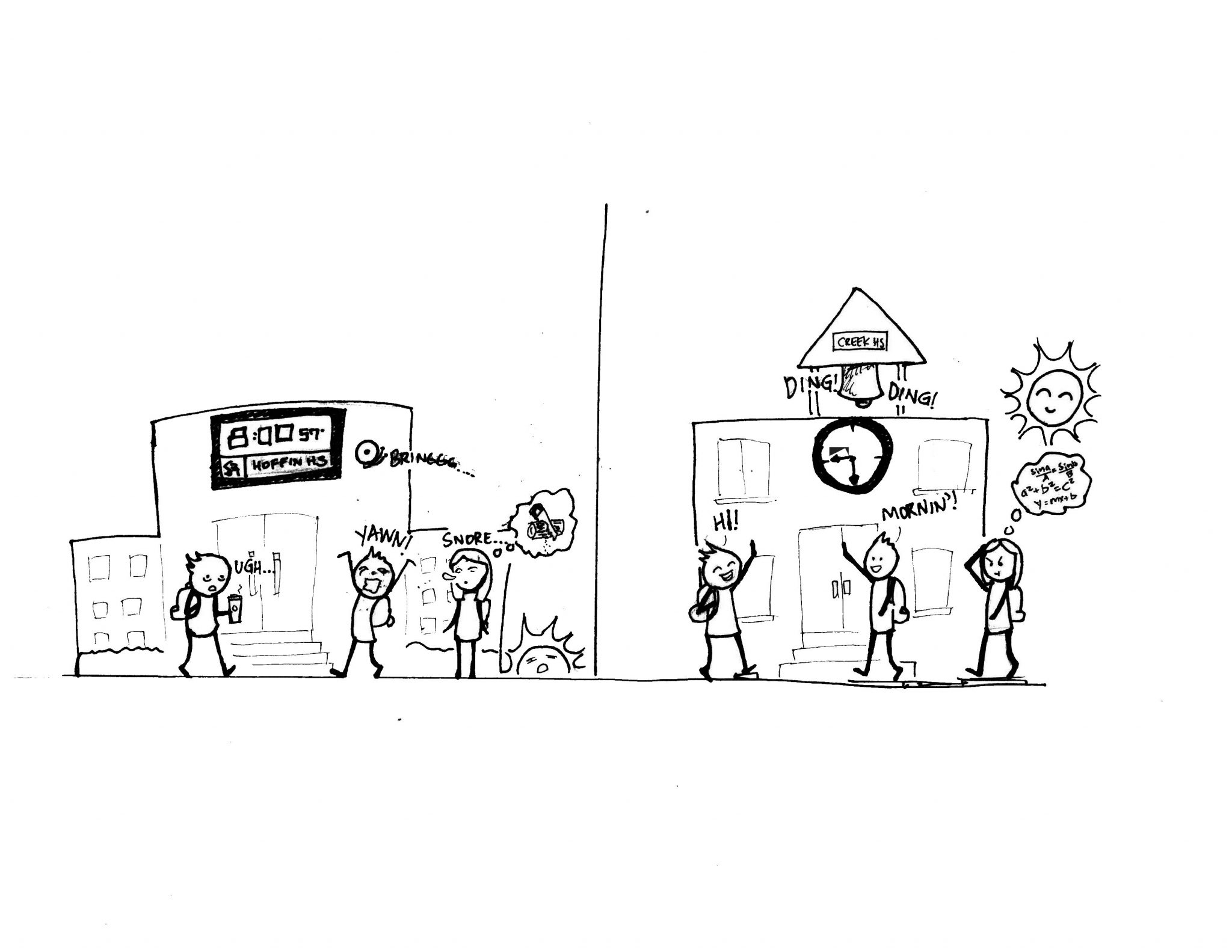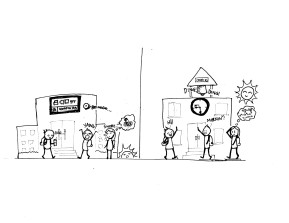
Punctuality is my greatest vice. Whether it be replying to a Facebook message or turning in my Spanish homework in on time, I’m always running late. I am also not a morning person. As winter break comes to a close, the lazy days of watching reruns of “90210” on the CW give way to the unpleasant reality of 8 a.m. alarms. You can imagine me trying to make it to my first-period class 10 minutes after the 8 a.m. bell, if I’m lucky. By fifth period, all I think about is napping through lunch.
My shortcoming in making it to school on time is not unique; debate on whether the school should start later to accommodate sleep schedules has been relevant for a while. Among the millennial generation, more than 87 percent of high school students suffer some instance of the inability to concentrate, poor grades, drowsy driving incidents, and anxiety in response to the lack of sleep. The American Academy of Pediatrics has encouraged high school districts across the nation to start school no earlier than 8:30 a.m.
A simple alternative is to change the school schedule from 9 to 4:15 — keep the length of the school day but change the start and end times. Obviously, changing Aragon’s school schedule involves parents, teachers, students, and the district; the student’s schedule of studying, participating in sports and extracurricular activities, working after school, sharing responsibilities at home, and enjoying social events should also be considered in this decision. But, by simply adjusting the start times, fewer students will be sleepless at Aragon.

The extra one hour in the morning can not only push students to sleep earlier but help students with sleep schedules. For instance, when I started reading my history textbook one night around 2 a.m., I looked at the ten more pages to go until the end of the chapter and decided to take a quick nap; the next moment, my mom was waking me up for school and I realized that I had slept through the night and had not finished homework. A start schedule at 9 a.m. could have motivated me to sleep earlier and wake up around 8 a.m. to finish studying and I could learn the material faster in the morning as well.
There are many students who adjust their daily schedules to accommodate the workload of junior and senior year. Students can choose to first sleep for eight hours when they come home from school and wake up in the early morning hours — this makes sure that they are getting enough hours of sleep while remaining distraction free in the morning when there is less of a temptation to go on facebook or text friends at 4 a.m. in the morning. A later start time can increase the flexibility for these students as well as encourage them to take on more activities that they like after school knowing that they have more time in the morning to finish their homework.
Although some districts have changed their schedules in response to this issue, the decision is still open to debate in many school districts. Certainly, despite logistical issues that a later school schedule demands, we must consider the physical and psychological health of the individual student.



